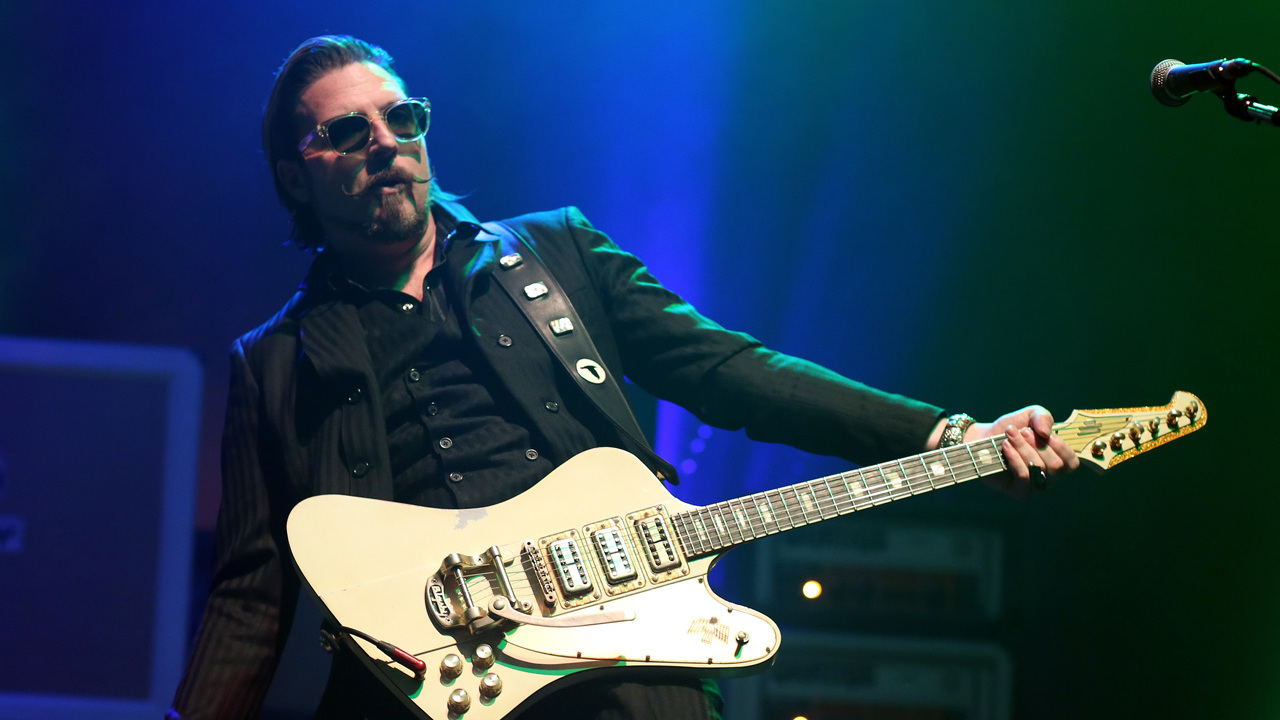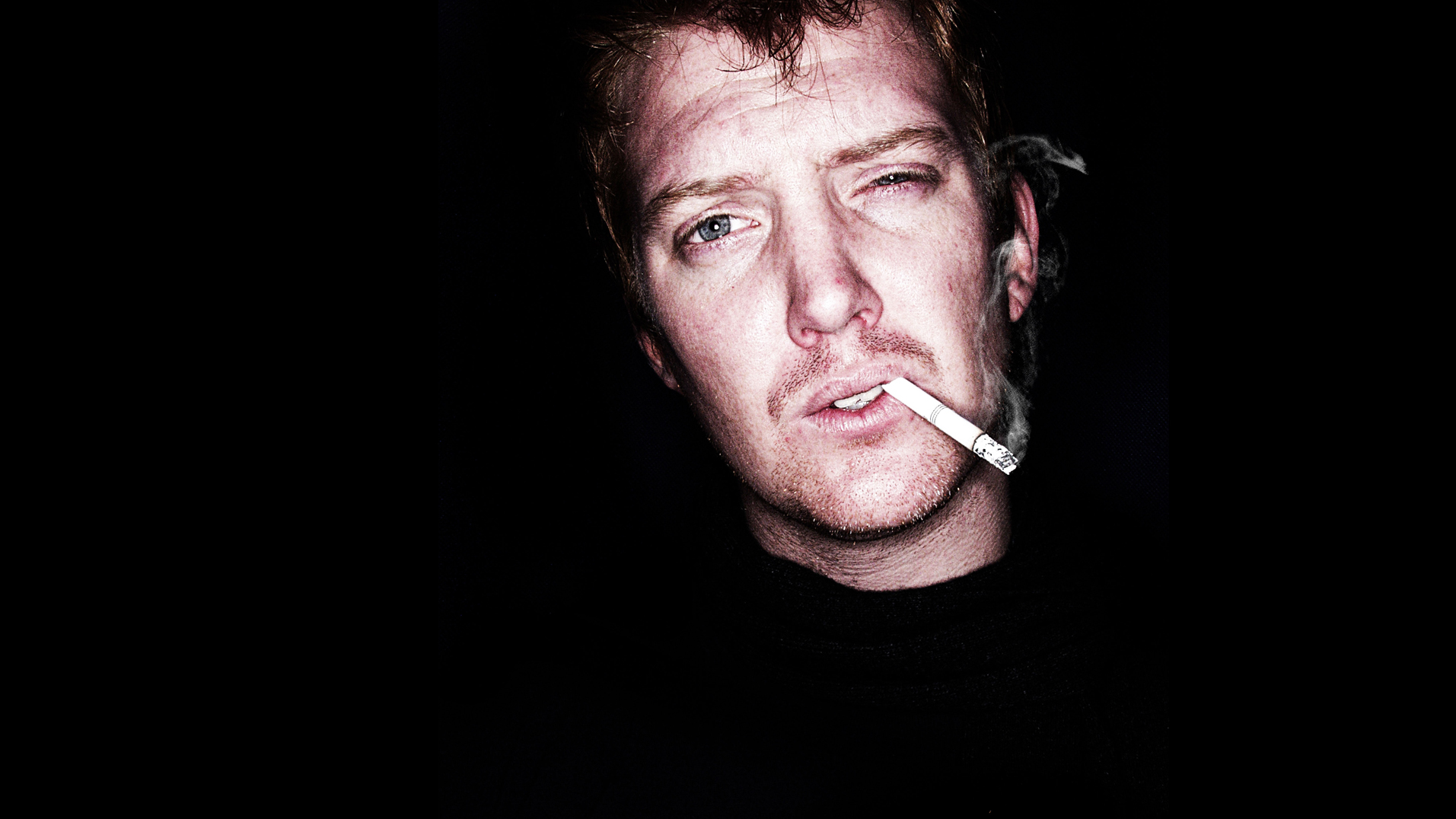Scott Holiday's 5 Essential Guitar Albums
Rival Sons' guitarist Scott Holiday picks the albums that inspired him. "If a guitarist sounds interesting, you can get a sense of who he is as a person"

Select the newsletters you’d like to receive. Then, add your email to sign up.
You are now subscribed
Your newsletter sign-up was successful
Want to add more newsletters?

Every Friday
Louder
Louder’s weekly newsletter is jam-packed with the team’s personal highlights from the last seven days, including features, breaking news, reviews and tons of juicy exclusives from the world of alternative music.

Every Friday
Classic Rock
The Classic Rock newsletter is an essential read for the discerning rock fan. Every week we bring you the news, reviews and the very best features and interviews from our extensive archive. Written by rock fans for rock fans.

Every Friday
Metal Hammer
For the last four decades Metal Hammer has been the world’s greatest metal magazine. Created by metalheads for metalheads, ‘Hammer takes you behind the scenes, closer to the action, and nearer to the bands that you love the most.

Every Friday
Prog
The Prog newsletter brings you the very best of Prog Magazine and our website, every Friday. We'll deliver you the very latest news from the Prog universe, informative features and archive material from Prog’s impressive vault.
Rival Sons guitarist Scott Holiday doesn’t listen to music passively – he digs in deep and dissects records with surgical precision. And when it comes to guitar-based albums, he goes ever further.
“I leave nothing on the table,” he says. “I want to learn everything about the guitarist and how he did what he did: the solos, the riffs, the chord positions, the pedals, the guitars, the picks – you name it, I’m all over it. I even want to know what kinds of mics were used and where they were placed at the amp.” He laughs, then adds, “I can’t help it. I’m a complete nerd when I hear something that inspires me.”
For Holiday, chops are just one part of the picture, but awe-inspiring technique only goes so far if a guitarist hasn’t mastered his tone. “Playing fast is cool,” he says. “I grew up with the super-shred guys, and I appreciate what they do, but I’m more drawn to the sound of the guitar. Your tone is a huge part of your signature style, and it should complement the rest of the music. You’re a key element of the overall production of the song. If you don’t sound good, nobody’s going to care how brilliant your soloing is.”
And personality counts, says Holiday: “It’s like speaking to somebody you haven’t met on the phone – you get a feel for who he is because of the sound of his voice. Same thing when you listen to a record: If a guitarist sounds interesting, you can get a sense of who he is as a person. You hear how he reacts or leads the conversation through his playing. It’s as if he’s speaking to you, only he’s doing so through wire and wood.”
Below, Holiday runs down his choices for five essential guitar albums. Rival Sons are currently on tour in Europe and arrive in the UK for a pair of shows on December 3. Visit their official tour page for all dates.
Van Halen – Van Halen (1978)
“It’s an obvious choice, but it’s also an undeniable one. I first heard this record when I was eight or so. My aunt was playing a cassette of it at a party, and so what I do? I stole it! I just took it right out of the tape player. I didn’t have the cover, so I made my own artwork and stuck it inside an empty case. I think I drew a picture of a hot guitar or something.
Sign up below to get the latest from Classic Rock, plus exclusive special offers, direct to your inbox!
“Let me tell you, I wore that tape out. When it comes to guitar albums, it eclipsed everything else completely. I wasn’t playing guitar yet – I was sort of dreaming about it – so I didn’t know the difficulty factor in what I was hearing. If I’d been playing already, maybe I would have thought, ‘My God, how can somebody do this?’ To me, it just sounded like so much fun. I was like, ‘All right, I’m going for this. This sounds cool.’
“There’s total joy that comes out of Eddie’s playing. I mean, listen to Eruption – even if you don’t like shredding, you can still hear that this guy is having a blast. A jazz guy can hear it; a soul guy can hear it. It’s inarguably one of the most important guitar pieces ever recorded.”
Django Reinhardt – The Indispensable Django Reinhardt (1949-1950) (1994)
“This is an artist I discovered a little later. A lot of the records I have of his are imports and compilations, so I’m going to go with The Indispensable Django Reinhardt, which encompasses his career and his life as a player.
“If you’ve only heard his name but don’t actually know his music, you owe it to yourself to check him out. He’s really the beginning of what we think of as virtuosity. Before him, guitarists didn’t lead the band so much; they functioned more like accompanists. Django put himself in the centre of the band – only horn players were doing that kind of thing at the time.
“Like with Eddie Van Halen, there’s a complete sense of joy and freedom in Django’s playing. I had heard him mentioned all the time, so I started digging around to find his records. I knew a bit of his backstory – he’d been in a fire and damaged the other two fingers – so when I heard the music, his accomplishments seemed even more impressive. The man just wouldn’t be stopped. But even if you don’t know anything about him, even if you’re just listening cold, you’ll appreciate the beautiful playing.”
Jeff Beck – Truth (1968)
“I love Wired and the later stuff, but something about the early Jeff Beck records, Truth and Beck-ola, hits me more. The sound of Jeff’s guitar and the kinds of things he was reaching for always meant a lot to me.
“A lot of guys around this time were playing blues licks and were using fuzz boxes, but there was a real purity to Jeff’s approach. It just seemed a little different – and a little better – than what everybody else was doing.
“Rod Stewart is singing on this record. I do like the vocal stuff, but I’ll take Jeff instrumentally any day. Especially on this album, I love how he uses a Telecaster with a Tone Bender. It was funny, because I was at a similar place in my playing and what I was trying to do tonally when I first heard Truth, and so that gave me a real connection to it. It was like, ‘Oh, my God. This is what I want, and maybe this is where I got it from.’ Somehow it seeped in subconsciously.
“Shapes of Things is great, and I love I Ain’t Superstitious and You Shook Me. There isn’t a bad cut on the record. But you have to give it up for Beck’s Bolero. It’s a masterpiece.”
Miles Davis – In a Silent Way (1969)
“We still haven’t confirmed whether Miles Davis was from this planet. All things point to the negative – he’s from somewhere else. Such an unconventional and uncompromising bandleader. You wouldn’t think that somebody else could stand out on one of his records, but John McLaughlin’s contributions here must be marked and noted. His playing is extraordinary.
“There were a lot of very heavy musicians in Miles’ band, so for them to give John that much of a push and to let him do his thing just shows you how highly they regarded him. They knew he could shine. His playing and his tones were highly influential for me and a lot of other players. Like Miles, he’s from another planet.
“John gets really adventurous and goes ‘outside’ a lot, but he does so in a beautiful way. I don’t hear this stuff and go, ‘Oh, wow, that’s so hard what he’s doing.’ I just react to it in a natural and lovely way. He’s very fast – at this point, he might have been the fastest guitarist around – but he’s always very musical. He’s aiming high, and he always reaches what he’s going for.”
The Beatles – The Beatles (1968)
“The White Album is a brilliant record, one of their best, bit it’s also a great guitar record. Think about the Beatles for a second. They didn’t have just one guitarist – they had three. And all of them had individual styles and sounds, and they always made whatever they were doing fit the song.
“So much has been said about this record – they were fighting and recording separately and all that. But what I really like about it is how they were trying for something. They were reaching for something new. They had already accomplished so much, but they weren’t satisfied. Each new song was a new boundary that they broke through.
“Blackbird is an amazing acoustic piece by Paul. I mean, here’s the band’s bass player fucking destroying on the guitar. This is basically magician shit. John’s got great guitar moments – Revolution 1, Happiness is a Warm Gun, I’m So Tired. And then look at George. One of his best contributions is While My Guitar Gently Weeps. Eric Clapton does the soloing, and he’s one of the few guest artists to ever appear on a Beatles record.
“Eric was George’s buddy, and George kind of snuck him in to play on the track. I read that Eric was so afraid that the other guys would hear him and not want him on the record that he plugged into George’s setup with the Leslie cabinet. He wanted to try to mask his own sound. A beautiful Eric solo on an impeccable song.”
Joe is a freelance journalist who has, over the past few decades, interviewed hundreds of guitarists for Guitar World, Guitar Player, MusicRadar and Classic Rock. He is also a former editor of Guitar World, contributing writer for Guitar Aficionado and VP of A&R for Island Records. He’s an enthusiastic guitarist, but he’s nowhere near the likes of the people he interviews. Surprisingly, his skills are more suited to the drums. If you need a drummer for your Beatles tribute band, look him up.

